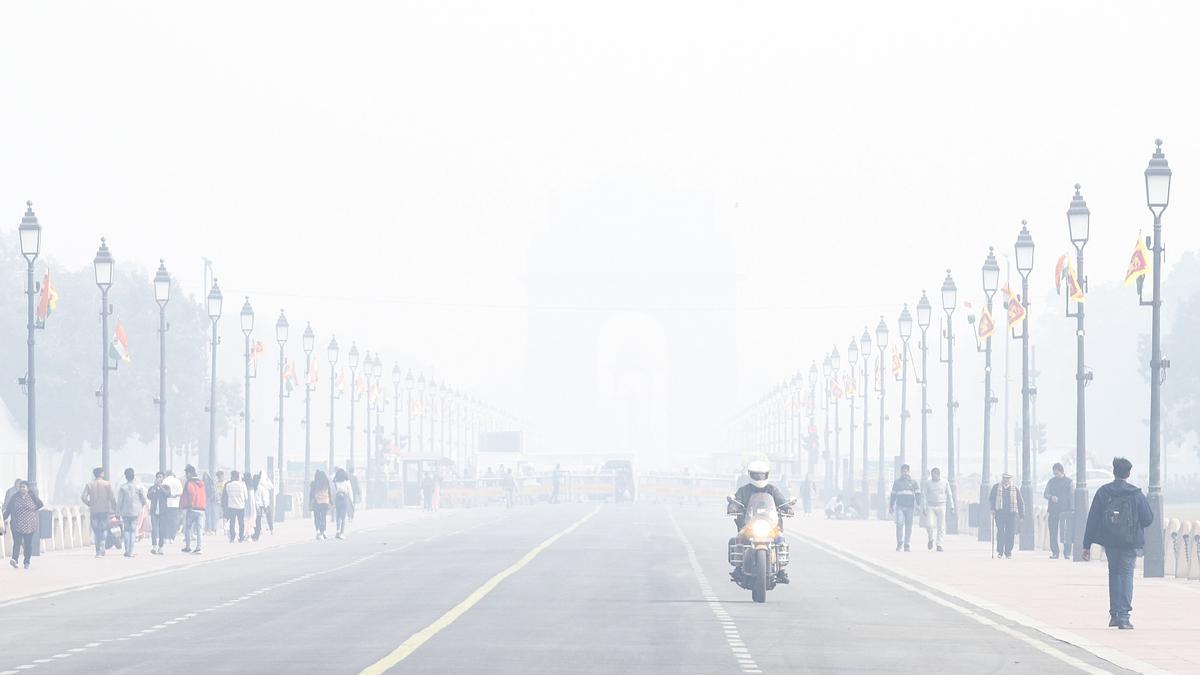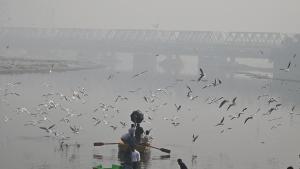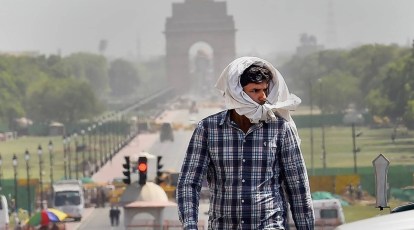 A thick smog engulfed the Yamuna River and surrounding areas as pollution levels worsened. The Central Pollution Control Board (CPCB) issued a warning about the health risks of prolonged exposure, noting that the current air quality could severely impact even healthy individuals and pose critical dangers to those with pre-existing conditions.
A thick smog engulfed the Yamuna River and surrounding areas as pollution levels worsened. The Central Pollution Control Board (CPCB) issued a warning about the health risks of prolonged exposure, noting that the current air quality could severely impact even healthy individuals and pose critical dangers to those with pre-existing conditions.
In response to the deteriorating air quality, strict measures under GRAP Stage IV have been reintroduced. These include:
- A ban on all non-essential construction and demolition activities.
- Restrictions on the operation of older vehicles that do not meet pollution standards.
The measures were reactivated after Delhi’s air quality deteriorated sharply, following a brief period of improvement earlier this month.
Delhi’s pollution woes stem from a combination of factors, including stubble burning in neighboring states, vehicular emissions, and stagnant weather conditions due to low wind speeds. On Monday night, December 16, the city’s AQI touched 401, categorized as ‘severe.’ By Tuesday afternoon, the AQI had escalated to 433, with hazardous particulate matter concentrations significantly exceeding safe limits.
According to the CPCB, the PM2.5 levels—the fine particulate matter responsible for respiratory illnesses—were recorded at 251.5 micrograms per cubic meter on Tuesday evening, 16.7 times higher than the World Health Organization’s (WHO) prescribed safe limit of 15 micrograms per cubic meter over a 24-hour period.
PM2.5 particles are particularly dangerous because they are small enough to penetrate deep into the lungs, leading to severe respiratory and cardiovascular issues.
The CPCB warned that prolonged exposure to such severe pollution levels could exacerbate respiratory diseases, impact lung function, and harm vulnerable groups, including children, the elderly, and individuals with pre-existing health conditions.
The Air Quality Early Warning System for Delhi also predicted that pollution levels would remain in the ‘severe’ category on Wednesday, December 18, due to unfavorable weather conditions, including reduced wind speeds that trap pollutants in the air. However, a slight improvement is expected on December 19 and 20, with AQI levels likely to fall into the ‘very poor’ category.
Authorities and environmentalists have called for stricter enforcement of pollution control measures, long-term policy interventions, and public participation to address Delhi’s persistent air quality crisis. The reactivation of GRAP restrictions is seen as a necessary, albeit temporary, step in managing the immediate health risks posed by hazardous pollution levels.




